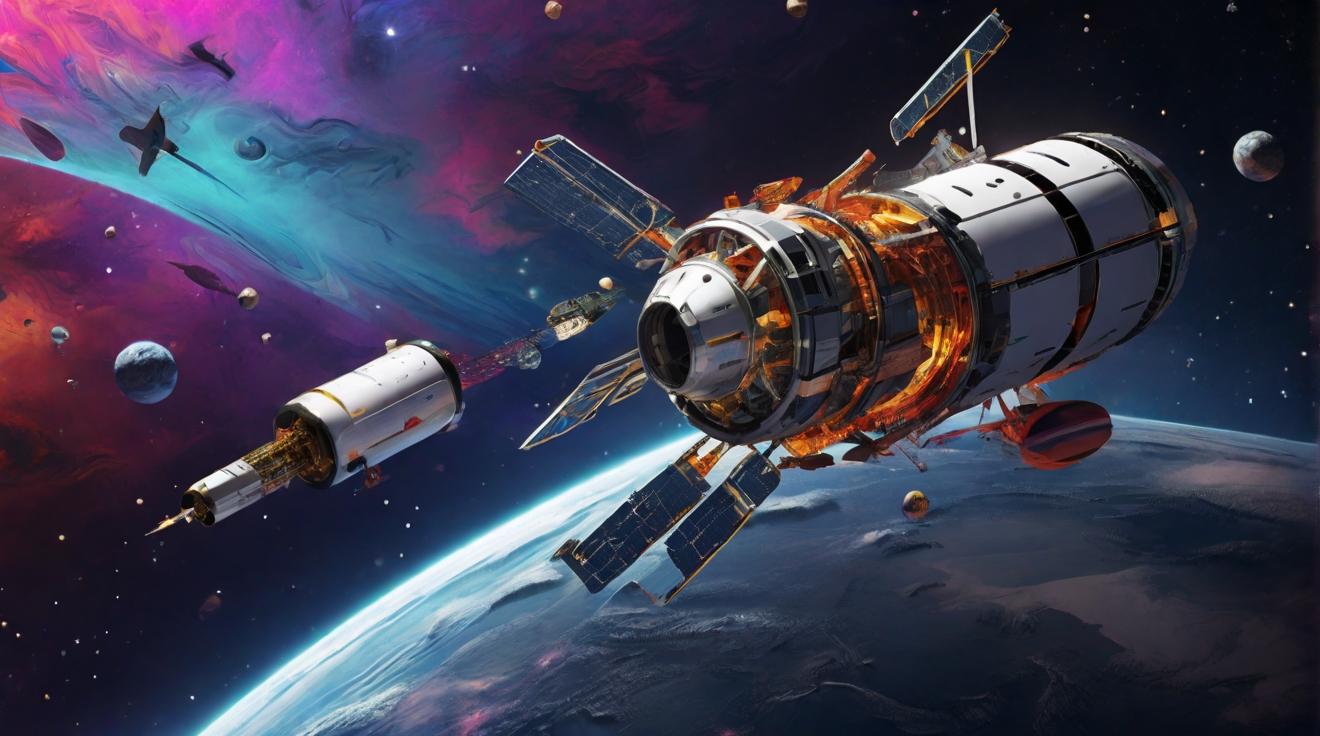SpaceX to Remove Older Starlink Satellites Due to Design Flaw
SpaceX, the renowned aerospace manufacturer, plans to take approximately 100 of its older Starlink satellites out of orbit to prevent potential failures caused by a design flaw. These satellites, launched between 2019 and 2020, lack visors that reduce sunlight reflection, resulting in increased brightness.
To address this issue, SpaceX will initiate a controlled descent of the satellites over a span of six months. During this time, the satellites will maintain maneuverability and collision avoidance capabilities. This move is part of the company’s larger concerns regarding space traffic management and sustainability, prompting discussions on regulations for timely satellite deorbiting at the end of their operational lives.
The rapid expansion of Starlink, currently the world’s largest satellite constellation, has sparked intensified debate. In response, new regulatory suggestions propose a requirement for satellites to be deorbited within a five-year timeframe after completion of operations, representing a significant reduction from the previously accepted 25-year period. These changes are being shaped at national levels, considering international guidelines in order to prevent the fragmentation of rules across jurisdictions.
Despite the removal of these older satellites, SpaceX ensures that their Starlink broadband service will remain unaffected. The company emphasizes its high production and launch capabilities as means to continuously enhance and maintain the resilience of their network. As the future of the satellite industry takes shape, space organizations and regulatory bodies are working towards responsible and sustainable practices to ensure the long-term viability of satellite constellations.
Analyst comment
Positive news:
SpaceX’s decision to remove older Starlink satellites due to a design flaw showcases their commitment to safety and sustainability. This move, along with proposed regulatory changes for timely satellite deorbiting, demonstrates the industry’s focus on responsible practices. The market is expected to remain stable as SpaceX assures that their broadband service will not be impacted.













